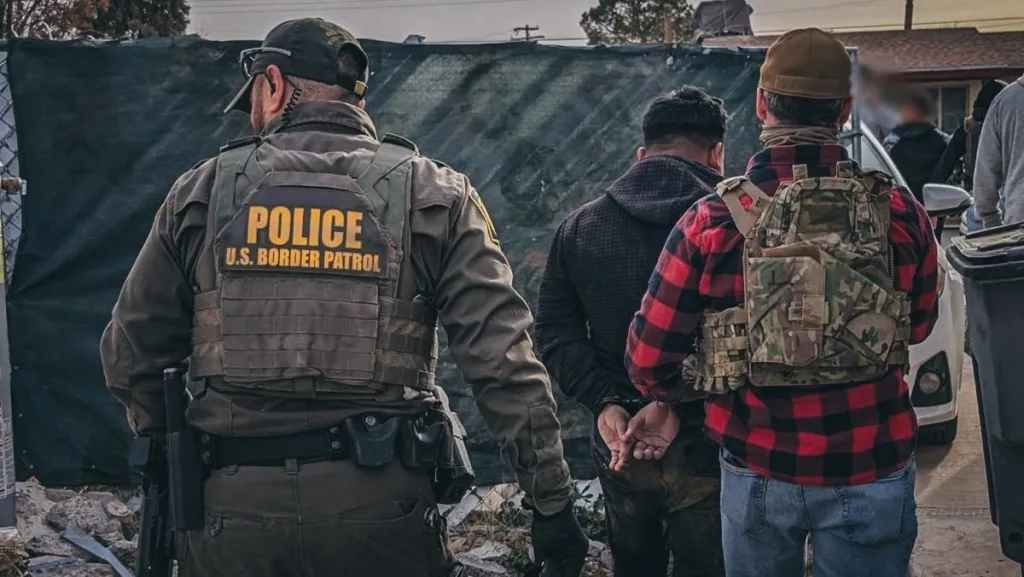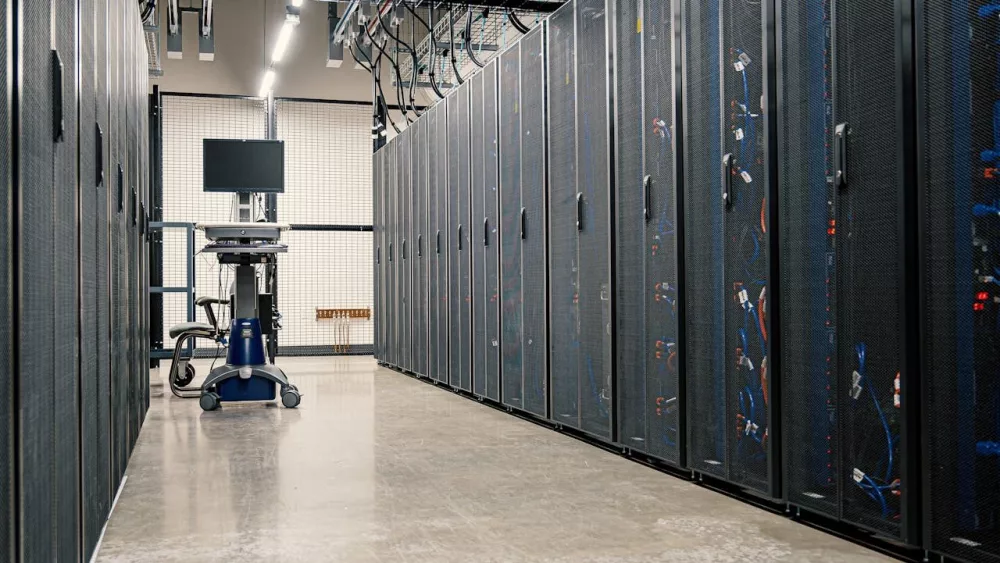WASHINGTON, D.C. – The Trump administration is moving quickly to dramatically expand the nation’s capacity for detaining immigrants who do not have legal authorization to be in the United States.
The administration has largely turned to the for-profit, private prison industry to reopen or repurpose shuttered and aging facilities — many of which have been previously criticized for poor conditions and inadequate care.
In February, U.S. Immigration and Customs Enforcement announced it will reopen Delaney Hall in Newark, New Jersey. The detention facility, owned by private prison company GEO Group, has the capacity to hold about 1,000 people. It will become the largest ICE processing and detention center on the East Coast. The 15-year contract is valued at $1 billion.
Private prison operator CoreCivic also announced it will reopen the South Texas Family Residential Center in Dilley, Texas. The family detention site can house up to 2,400 ICE detainees, including children. The new contract will run through at least March 2030.
Private immigration detention is growing fast — again. The Trump administration is rapidly expanding immigration detention through billion-dollar contracts with private prison companies, including GEO Group and CoreCivic. Dozens of facilities may reopen across at least eight states, including places with long histories of abuse. But while some communities and states are concerned about oversight and are pushing back, others see economic opportunity.
Despite profiling concerns, more law agencies are joining street-level immigration enforcement
President Donald Trump isn’t the first president to rely on private contractors to detain immigrants. Tens of thousands were held in private facilities under both the Obama and Biden administrations.
But the new contracts mark the start of a planned expansion led by Trump’s border adviser, Tom Homan, who has called for boosting ICE’s detention capacity to at least 100,000 people.
Trump has repeatedly touted his goal of staging the “largest deportation operation in American history,” vowing to deport millions of people. There are an estimated 11 million immigrants who are not legally authorized to live in the United States, according to the Migration Policy Institute, an independent, nonpartisan think tank.
Acting ICE Director Todd Lyons told attendees of the 2025 Border Security Expo in Arizona this week that he wants the agency to become as efficient at deporting immigrants as e-commerce giant Amazon is at delivering packages.
“We need to get better at treating this like a business,” Lyons said, describing his ideal deportation process as “like [Amazon] Prime, but with human beings.”
On top of expanding contracts with private operators, the Trump administration also has sent immigrants to detention facilities abroad, including Guantánamo Bay in Cuba and Centro de Confinamiento del Terrorismo, or CECOT, in El Salvador.
As of March 23, ICE had 47,892 people in custody, according to the government’s latest detention statistics. Yet the agency requested funding for just 34,000 beds in fiscal year 2025, according to the U.S. Department of Homeland Security’s budget documents. ICE, in February, released at least 160 detainees after its network of at least 107 facilities reached 109% capacity, according to internal government statistics obtained by CBS News.
!function(){“use strict”;window.addEventListener(“message”,(function(a){if(void 0!==a.data[“datawrapper-height”]){var e=document.querySelectorAll(“iframe”);for(var t in a.data[“datawrapper-height”])for(var r,i=0;r=e[i];i++)if(r.contentWindow===a.source){var d=a.data[“datawrapper-height”][t]+”px”;r.style.height=d}}}))}();
During earnings calls earlier this year with stockholders, both GEO Group and CoreCivic officials described the current landscape as one of unprecedented growth and opportunity. Alongside detention expansion, executives said, they expect increased demand for transportation and electronic monitoring services.
Neither company granted Stateline an interview. In an emailed statement, GEO’s corporate relations director, Christopher Ferreira, wrote: “We are proud of our record of working closely with federal, state, and local government agencies to ensure that all persons entrusted to our care are treated in a safe, secure and humane manner.”
In that same statement, Ferreira also confirmed GEO is investing $70 million to expand housing, transportation and monitoring services to meet the federal government’s immigration enforcement goals.
CoreCivic’s senior director of public affairs, Ryan Gustin, wrote in an email that “the fact is the services we provide help the government solve problems in ways it could not do alone — to help create safer communities by assisting with the current immigration challenges, dramatically improve the standard of care for vulnerable people, and meet other critical needs efficiently and innovatively. These are problems the American public has made clear they want fixed.”
Both companies are now moving quickly to reopen idle facilities, which could happen in just a few months.
‘Emblematic of the immigration detention system’
Private immigration detention dates back to the 1980s, when companies such as CoreCivic — then called Corrections Corporation of America — began operating detention facilities. In 1984, the company converted a Houston motel into a makeshift detention center. Since then, the federal government’s use of private contractors has dramatically increased.
Today, nearly 90% of immigrants in ICE custody are held in privately operated facilities, according to the latest analysis by the Transactional Records Access Clearinghouse, a data gathering and research group.
!function(){“use strict”;window.addEventListener(“message”,(function(a){if(void 0!==a.data[“datawrapper-height”]){var e=document.querySelectorAll(“iframe”);for(var t in a.data[“datawrapper-height”])for(var r,i=0;r=e[i];i++)if(r.contentWindow===a.source){var d=a.data[“datawrapper-height”][t]+”px”;r.style.height=d}}}))}();
Some immigration advocates say this growth is largely driven by profit.
“The conditions at the privately run facilities are awful, but they’re really emblematic of the immigration detention system as a whole,” Setareh Ghandehari, advocacy director at the immigration rights group Detention Watch Network, told Stateline. “They’re incentivized to cut corners.”
Just last week, the U.S. Department of Homeland Security posted a request inviting contractors to submit bids for new detention facilities, transportation, security personnel, medical services and administrative support. The contracts could total up to $45 billion over the next two years.
Over the next several months, dozens of privately operated ICE detention facilities may open in at least eight states, including California, Kansas, Michigan, Nevada, New Jersey, New Mexico, Texas and Washington.
Several states have tried to rein in private detention within their jurisdictions, with varying levels of success.
At least four states — Illinois, Iowa, Nevada and New York — have passed laws banning private prisons, though those measures do not apply to federal immigration detention facilities.
They’re incentivized to cut corners.
– Setareh Ghandehari, Detention Watch Network’s advocacy director
Illinois, which outlawed for-profit prisons in the 1990s, passed a law in 2019 that prohibits state, county and local governments from entering into contracts with private companies to run immigration detention centers.
New Mexico legislators earlier this year considered a similar bill that would have prohibited state agencies and local governments from entering into any agreements used to detain immigrants. The bill also would have required that any existing agreements end as soon as possible. The bill passed out of the House but did not get through the Senate before the session ended.
California and New Jersey enacted laws to ban private detention — in 2019 and 2021, respectively. But both laws have been ruled partially unconstitutional, allowing private companies to continue operating.
The judges determined that while the states can bar public agencies or departments from contracting with ICE or private companies, they cannot prevent private companies from entering into contracts and operating facilities within state borders.
The New Jersey attorney general’s office is seeking a federal appeals court hearing to challenge the ruling.
Private detention oversight
Legislators in Washington state are considering a bill that would introduce state-level oversight of privately operated immigration detention facilities.
The bill would grant the state Department of Health the authority to inspect privately run detention facilities in Washington. Under the proposal, the department would be able to establish rules regarding access to phones, medical services, running water, lighting and food safety.
State inspectors also would have the authority to enter facilities at any time and impose fines of up to $10,000 per violation. The bill passed out of the House and is now under review in the Senate.
Some of the facilities slated to reopen in the coming months, including in Kansas and New Jersey, are already facing challenges related to permits and oversight.
CoreCivic filed paperwork earlier this year to reopen its shuttered Leavenworth Detention Center in Kansas as an immigration facility. The jail, which closed in 2021, has a documented history of violence and abuse when it was previously run by CoreCivic as a pretrial lockup.
The new proposal has sparked strong public opposition.
CoreCivic initially applied for a special use permit with the city but later withdrew, avoiding the required public hearings. In turn, the Leavenworth City Commission unanimously passed a resolution requiring the company to complete the full permit process and has since filed a federal lawsuit.
In Newark, New Jersey, tensions have escalated between city officials and GEO Group over the company’s efforts to open the 1,000-bed Delaney Hall. The Newark mayor’s administration filed a legal complaint last week, accusing the company of violating local codes in a rush to complete the project.
The filing came just one day after Newark’s engineering department issued a stop-work order, halting all ongoing construction at the site. GEO plans to open the facility by this summer.
Trump’s mass deportation plan could rely on state cooperation
In late February, CoreCivic also announced that it has expanded its contracts with ICE to accommodate up to 784 detainees collectively at CoreCivic-owned facilities in Mississippi, Nevada, Ohio and Oklahoma.
While some communities have pushed back against reopening detention centers over concerns about abuse and lack of oversight, others view the facilities as economic lifelines and say they offer a safer alternative than releasing detainees while their case is resolved.
Kansas state Rep. Pat Proctor, a Republican who represents the Leavenworth area, told local TV station KCTV that he was initially against the Leavenworth Detention Center becoming an ICE detention facility, but later changed his mind.
“I was very concerned they may be released,” Proctor said. “They are ICE detainees that are being held until they can be put on a bus to be put on a plane to go back to their country of origin. … I think it’s much safer for the community.”
But some academic research has found that the economic benefits of private prisons are often overstated. In many private detention facilities, basic operations such as food service and janitorial work are carried out by detained immigrants, who are paid as little as $1 a day.
Troubling conditions
Unlike state-run prisons or local jails in states with oversight bodies, privately operated ICE detention centers are not subject to state inspections or regulations. States or local governments may have limited discretion to inspect or regulate when detainees are held in state-owned or local facilities, experts say, but even then, the extent of that oversight varies widely.
As a practical matter, experts say, there is little to no state or local oversight of federal immigration detention operations.
!function(){“use strict”;window.addEventListener(“message”,(function(a){if(void 0!==a.data[“datawrapper-height”]){var e=document.querySelectorAll(“iframe”);for(var t in a.data[“datawrapper-height”])for(var r,i=0;r=e[i];i++)if(r.contentWindow===a.source){var d=a.data[“datawrapper-height”][t]+”px”;r.style.height=d}}}))}();
State legislators should focus on gathering as much information as possible about past private contracts, including how facilities operated and the challenges they faced, said Ben Eikey, manager of state training and development at the Levin Center for Oversight and Democracy, a nonpartisan organization that promotes government transparency.
Doing so, he argued, would help lawmakers make more informed decisions about how private detention centers and private prisons might affect their communities.
Internal audits and independent investigations have repeatedly flagged lapses in oversight at immigration detention centers, including those privately operated, across the country.
Although unannounced inspections by the U.S. Department of Homeland Security’s Office of Inspector General found that ICE “generally complied” with detention standards, inspectors still uncovered troubling conditions and questionable practices at several facilities, according to a report released in September.
The report warned that these gaps undermine ICE’s “ability to maintain a safe and secure environment for staff and detainees.”
The report also highlighted concerns over “guaranteed minimums” built into some ICE contracts with private operators and state or local governments, which require the government to pay for a set number of beds regardless of whether they are filled.
Between 2020 and 2023, eight of the 17 inspected facilities cost the federal government roughly $160 million in payments for unused space, according to the report.
“Although ICE must acquire and maintain enough bed space to satisfy demand for population surges and must adjust for health and safety requirements,” Joseph Cuffari, the inspector general of the Department of Homeland Security wrote in the report, “it must also strive for balance to avoid wasting funds on empty beds.”
Stateline reporter Amanda Hernández can be reached at ahernandez@stateline.org.
Stateline is part of States Newsroom, a nonprofit news network supported by grants and a coalition of donors as a 501c(3) public charity. Stateline maintains editorial independence. Contact Editor Scott S. Greenberger for questions: info@stateline.org.





